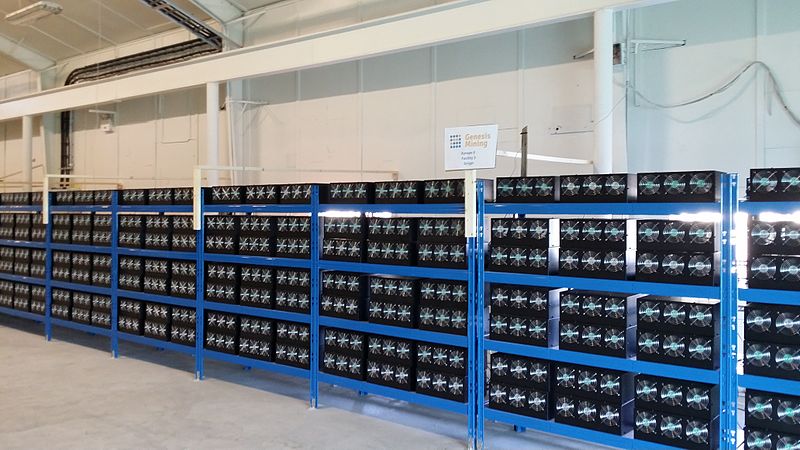 BLOCKCHAIN
BLOCKCHAIN
 BLOCKCHAIN
BLOCKCHAIN
 BLOCKCHAIN
BLOCKCHAIN
A Chinese government state agency has proposed that bitcoin mining be banned in the Middle Kingdom, a move that if approved may seriously impact the cryptocurrency.
The proposal comes from China’s National Development and Reform Commission, which published a revised list Monday of industries it wants to encourage, restrict or eliminate. China, ostensibly capitalist, is still a Communist-ruled country complete with a legacy of some central planning.
Although the proposal is open to public comment until May 7, the mere fact that it has been proposed will likely see it become law.
Notably, the proposal to ban bitcoin mining in China is not specifically one aimed against cryptocurrency but on the grounds of environmental protection, with bitcoin mining being seen as wasting energy and polluting the environment. Bitcoin mining is the process used to secure and verify bitcoin transactions from one user to another on bitcoin’s blockchain with those mining rewarded in payments of bitcoin.
In its early days, bitcoin mining could be done on a home computer, but the process of mining was designed to get harder with time, and in 2019 it requires dedicated custom-chip-powered hardware. Those bitcoin ASIC miners consumer electricity and at large scale, which is what major bitcoin mining companies such as Bitmain Technologies Inc. does, it consumes significantly large amounts of electricity.
In China, the main source of electricity is coal-fired power plants, whose pollution is particularly severe in the northeast in winter.
How severely a ban on bitcoin mining in China will affect the cryptocurrency is open to speculation, but there are some notable statistics that would suggest that a ban, at least in the short term, could be severe.
According to Cryptoslate, 74% of bitcoin’s network hashrate — that is, the process of mining — originates from Chinese-managed pools.
As the South China Morning Post noted, China is home to some of the world’s largest cryptocurrency mining farms “thanks to cheap electricity in the country’s coal-rich Xinjiang and Inner Mongolia regions.” That report added that “in recent months, Chinese miners are known to have deployed machines in the southern Yunnan and Sichuan provinces to take advantage of the even cheaper hydropower available there during the rainy season.”
The news affected the price of bitcoin as investors took a wait-and-see approach. As of 11:30 p.m. EDT, bitcoin was trading at $5,205.21, down slightly over the last 24 hours but still within its recent price range.
Support our mission to keep content open and free by engaging with theCUBE community. Join theCUBE’s Alumni Trust Network, where technology leaders connect, share intelligence and create opportunities.
Founded by tech visionaries John Furrier and Dave Vellante, SiliconANGLE Media has built a dynamic ecosystem of industry-leading digital media brands that reach 15+ million elite tech professionals. Our new proprietary theCUBE AI Video Cloud is breaking ground in audience interaction, leveraging theCUBEai.com neural network to help technology companies make data-driven decisions and stay at the forefront of industry conversations.